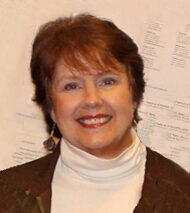
Nancy Huntting, Aesthetic Realism consultant, writes:
What qualities does a good novel or a good poem have that we want to have? In the latest issue of TRO, “The Novel, Poetry, & Our Lives Now,” there is some of the most thrilling literary commentary you’ll ever encounter, as (for instance) Eli Siegel speaks about such novelists as Cervantes, Richardson, Fielding, Scott. And through this issue, as you read about novels, you’ll also be learning about the way of seeing that people hope to have in their own lives, and want their nation to have. You’ll be encouraged immensely by “The Novel, Poetry, & Our Lives Now,” the great new issue of The Right of Aesthetic Realism to Be Known.
The commentary by Ellen Reiss begins:
Dear Unknown Friends:
Here is the concluding section of the remarkable, important lecture we have been serializing: The Poetic Trinity; or, Poetry—Whence, How, Whither?, of 1970, by Eli Siegel. As a means of commenting with a certain informality on the source of poetry (the whence), the technique of poetry (the how), and a poem’s purpose (the whither), Mr. Siegel uses, as text, essays by George Moir. They were written for the 7th edition of the Encyclopedia Britannica and are included in a book of 1839: Poetry, Modern Romance, and Rhetoric. In this final section of his talk, Mr. Siegel, surprisingly, speaks about novels as a means of showing what poetry is—also, we can say, what life is.
Novels & Us
In his teaching of Aesthetic Realism, Mr. Siegel spoke mightily, deeply, richly about the novel and about particular novels and novelists. Among those writers were Balzac, Dickens, Jane Austen, Ernest Hemingway, George Eliot, Henry James. His definitive 1951 lecture It Still Moves; or, The Novel, is published in issues 1982-1987 of this journal. And I quote the amazing, yet so logical, beginning of that talk. In these sentences about the relation of the novel to life, Mr. Siegel says what no other critic has:
Every person is trying to arrange the events of his or her life in terms of the good novel. By this I mean that as soon as we’re born things start happening to us, and most often we can’t make any sense out of those happenings—they proceed one after the other. So we forget a lot. And we give a meaning, out of relation, to some events. Some we just don’t want to think about. And there is generally vacuity and mess.
In a novel there must be happenings. There must also be happenings in a certain arrangement. If we could find some arrangement in the happenings of our lives, we would be prouder of ourselves, and happier, stronger….Read more